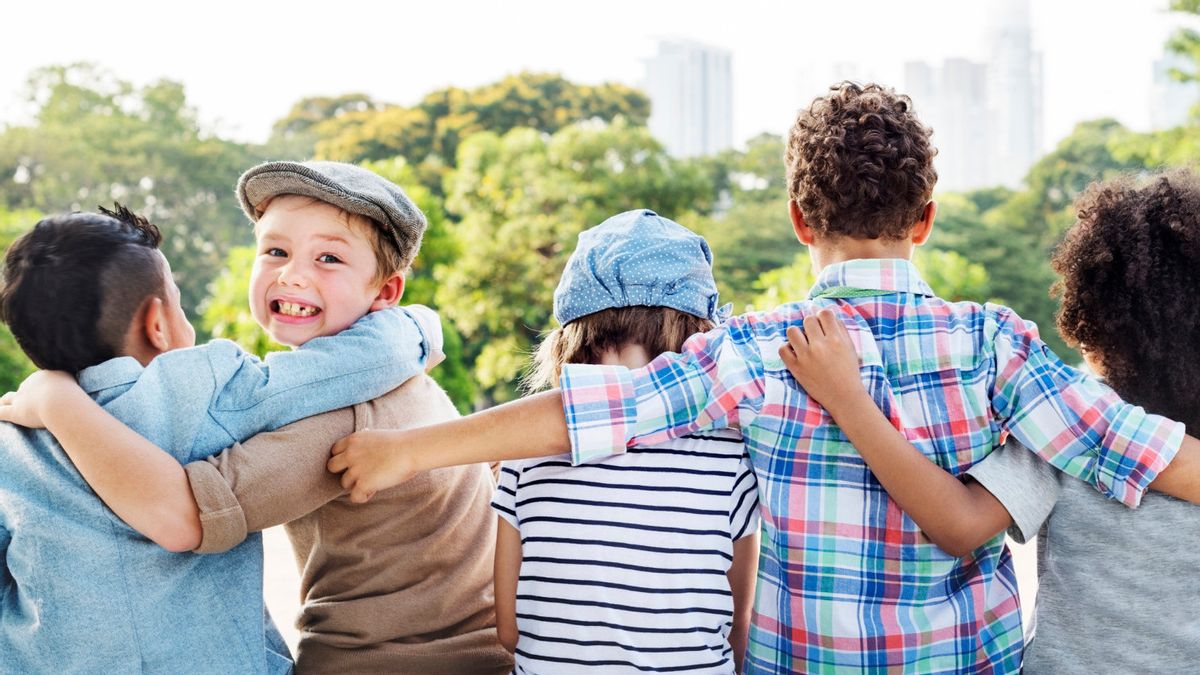YOGYAKARTA Friendship in childhood is very valuable because they will spend a lot of time together and tend to have close ties. By making friends, they allocate time to socialize consistently. This will help children build social skills and offer reliable sources of support.
Friendly relationships can be established for years. It can even exist throughout their lives. Often, friendship develops organically or with practical reasons. For example, when children find the same interest or similar backgrounds or a place to live in the same environment.
According to Michael Whitehead, PhD, LMFT, a marriage and family therapist reported by VerywellFamily, Sunday, November 12, estimates that most children have between 7 and 9 friends on average.
They are people they talk to and meet regularly, face-to-face. The number and quality of friendship that a child has is different from each child and depends on a number of factors, such as personality type, emotional setting skills, and prosocial behavior such as hospitality, "explained Whitehead further.
In full, here are the reasons why parents need to encourage their children to have friends during their growth period.
Childhood friendship is important because it interacts socially at peer levels, helping them to explore who they are outside the family unit. Friendship is a big part of life's development, says Renata Klabacha, MA, LMFT, licensed marriage and family therapist in Chicago, Illinois. Whitehead added, because we are all social beings and have social motivation, friendship plays a very important role in children's development.
Research shows that having a strong group of friends helps children feel comfortable with themselves. In particular, having the best mutual friendship will increase self-esteem and foster positive feelings for schools and their classmates.
"In childhood and youth, friendship helps children develop skills such as problem solving, conflict resolution, ability to compromise, listening skills, many sense, emotional setting, independence, identity formation, and creating a sense of belonging or community," explains Klabacha.
In fact, research shows that childhood friendships are associated with welfare, feelings of belonging, and the development of healthy prosocial skills. In addition, having at least one good friend as a child is associated with healthier mental health as an adult.
Whitehead pointed out that research has found that emotional intelligence or the ability to regulate emotions and be socially appropriate can predict the success of adults over IQ's score.
"When children have positive relationships with their peers, they tend to improve their emotional regulatory skills, conflict resolution skills, and problem solving skills," he said.
SEE ALSO:
Friendship with peers allows children to have an equal relationship, says James Youunis, PhD, a professor of psychology at the Catholic University of America in Washington, DC. Dynamics in a friendly relationship, is different from the dynamics experienced in the family, where parents are authorized figures.
Friendship is an important relationship that is different from relationships with parents. In fact, peers live in a reciprocal world where every child shares authority and autonomy," added Youunis.
However, friendship for children, both a few people and a group, dynamic relationships outside the family are good enough for their psychological development. For this reason, the reasons above can be parental motivation to support positive friendship for their children.
The English, Chinese, Japanese, Arabic, and French versions are automatically generated by the AI. So there may still be inaccuracies in translating, please always see Indonesian as our main language. (system supported by DigitalSiber.id)


















